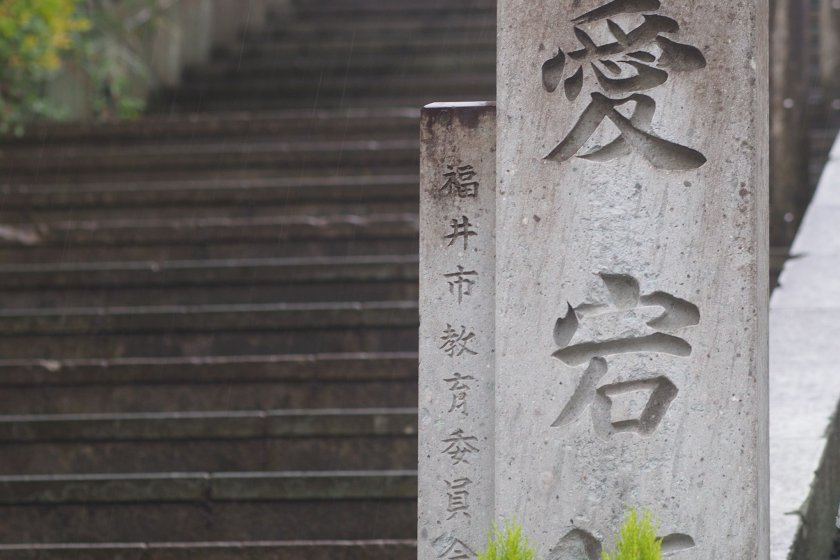In the center of Fukui City, looking over all the hustle and bustle, rises a bastion of nature known as Asuwa Mountain. You could always drive to Asuwa’s summit to enjoy the nature park and luscious greenery, but for locals, the best way up is to climb.
Atagozaka. You’ll hear the name, and see it on posters around town. It is a name that history has given to a stone staircase that stretches from the base of Aswua Mountain to its 116-meter summit. The name Atagozaka involves the kanji for love, and although this particular path of stairs is quite charming, there’s a lot more to it than that.
Before the Meiji Restoration, Asuwa Mountain went by the name of Mount Atago. Atagozaka—meaning something to the tune of “the slope leading to Atago”— indicated to visitors to the area that the path would lead them to Atago Shrine. In the mid-Edo period, Atago Shrine acted as a main meeting ground for practitioners of Shugendoーa religion with roots in Shinto and Buddhist practices. With Atago Shrine as a base, Shugendo was able to spread throughout Hokuriku, and other areas of Japan. At another point in history, the stair-laden path became known for its high-class restaurants and tea houses.
Though the historic heyday of Atagozaka has passed, visitors can still enjoy the beauty and history of the area surrounding the stairs. On the way to the summit is the Atagozaka Tea Ceremony Museum, complete with ceremonies to participate in, traditional gardens, and artifacts from when the tea ceremony made its way to Japan from China. In spring you can visit Asuwa Shrine during its spring festival, and view Atagozaka’s centuries-old weeping sakura tree in full bloom. Throughout the rest of the year, Atagozaka is known for holding a variety of small art exhibits and workshops, and for putting on romantic candlelit evenings, with beautiful lanterns lighting the gardens and buildings along the slope.
Atagozaka’s name starts with love, and although love doesn’t have much to do with its history, you’ll see why the staircase has gained the affection of locals and visitors once you make your first step.































